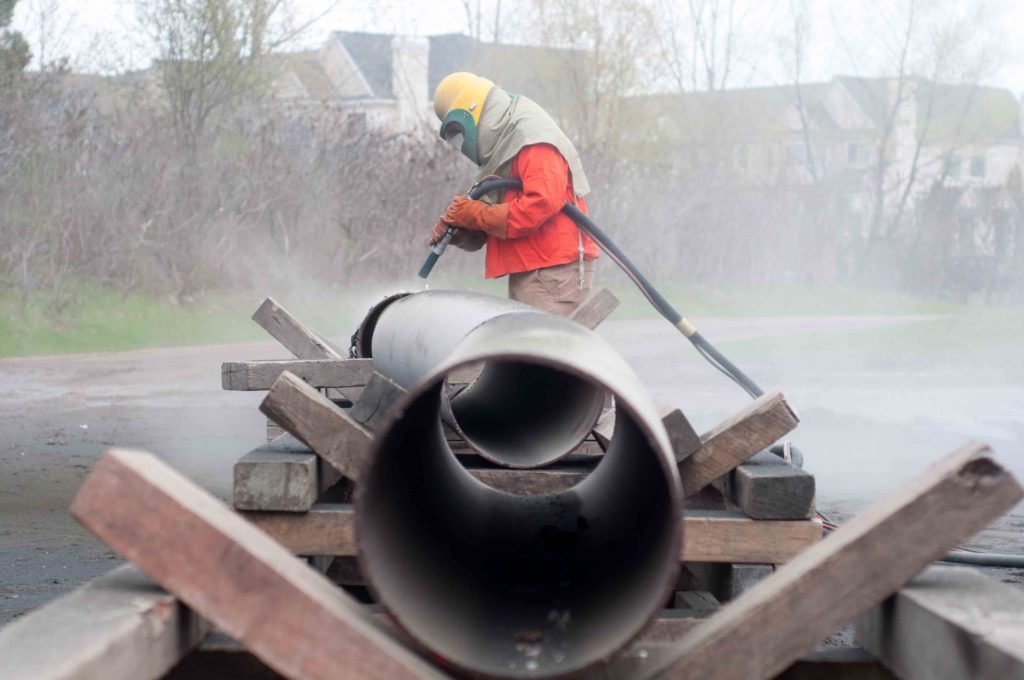
Why Prevailing Wage?
Minnesota prevailing wage laws advance regional economic policy by ensuring that workers on Minnesota’s publicly funded construction projects are paid local wages.
What is a prevailing wage rate?
A prevailing wage is the hourly rate, plus benefits, required by law to be paid to each trade worker while performing work on state-funded construction projects.
When do Minnesota prevailing wage laws apply?
State prevailing wage must be paid to construction workers on:
- State-funded road, highway, street, airport, bridge, power plant, water treatment and utility construction projects.
- State-funded building construction projects.
- State-funded economic development construction projects.
- Metropolitan Council funded construction projects.
- Locally funded construction projects where the prevailing wage has been required by local law or contract.
These projects can be highways, roads, wastewater treatment plants, public housing projects, public utilities, schools, parks and recreation improvements, or any other construction project funded in part or whole by state funds.
Who decides the Minnesota prevailing wage rate?
The Minnesota Department of Labor and Industry (DLI), sets the prevailing-wage rates to be comparable to wages paid for similar work in the county where the construction project is located. The rates are determined through an annual survey of actual wages paid to construction workers in the local community. These are called the “certified” prevailing-wage rates.
Where can I find the current Minnesota prevailing wage rates?
The prevailing-wage rate will depend on the type of work the worker is performing.
Commercial construction prevailing-wage rates must be paid on state-funded building projects, including state-owned buildings, colleges and schools.
Highway/heavy prevailing-wage rates must be paid on state-funded public works projects, including highways, roads, airport runways, bridges, power plants, dams and utilities.
What are the economic benefits of prevailing wage?
Prevailing wage laws keep construction costs stable while benefiting construction workers and local communities. The most comprehensive studies have found no impact on public construction costs while also finding that prevailing wage laws have the following positive economic impacts:
- Local contractors are more likely to win bids on local construction projects.
- Increases annual incomes for all construction workers by 5.2%.
- Expands health insurance coverage for construction workers by 5%.
- Reduces construction worker reliance on food stamps by 2.1%.
- Prevailing Wage results in increased participation in Registered Apprenticeship
More Resources
- Study: The Effects of Repealing Prevailing Wage in Wisconsin: Impacts on Ten Construction Market Outcomes. Frank Manzo IV and Kevin Duncan, Midwest Policy Institute; Colorado State University (2020)
- Study: An Examination of Minnesota’s Prevailing Wage Law: Effects on Costs, Training and Economic Development. Frank Manzo IV and Kevin Duncan, Midwest Policy Institute; Colorado State University (2018)
- Prevailing Wages in Minnesota Fact Sheet
- Minnesota Fair Contracting Foundation Resources
State of Minnesota Information
Minnesota Department of Labor and Industry
Labor and Industry Prevailing Wage Information Web Page
Phone: 651-284-5091
Email: dli.prevwage@state.mn.us
MN Department of Transportation Labor Compliance
Phone: 651-366-4204
Email: clancy.finnegan@state.mn.us
